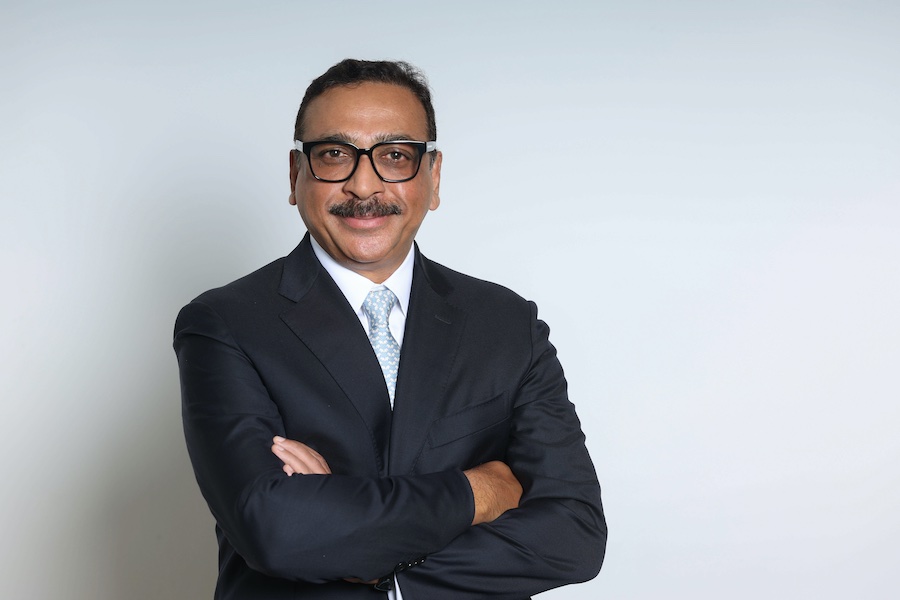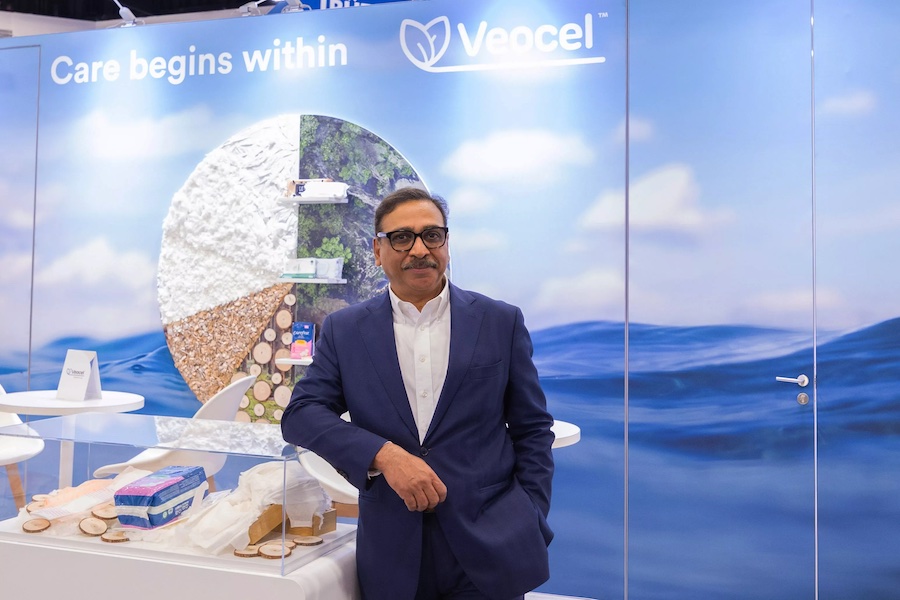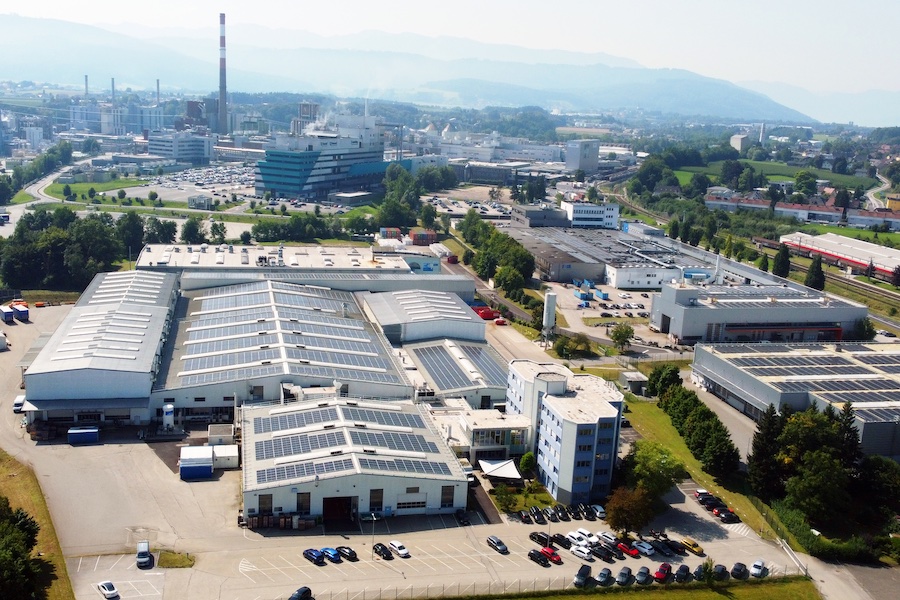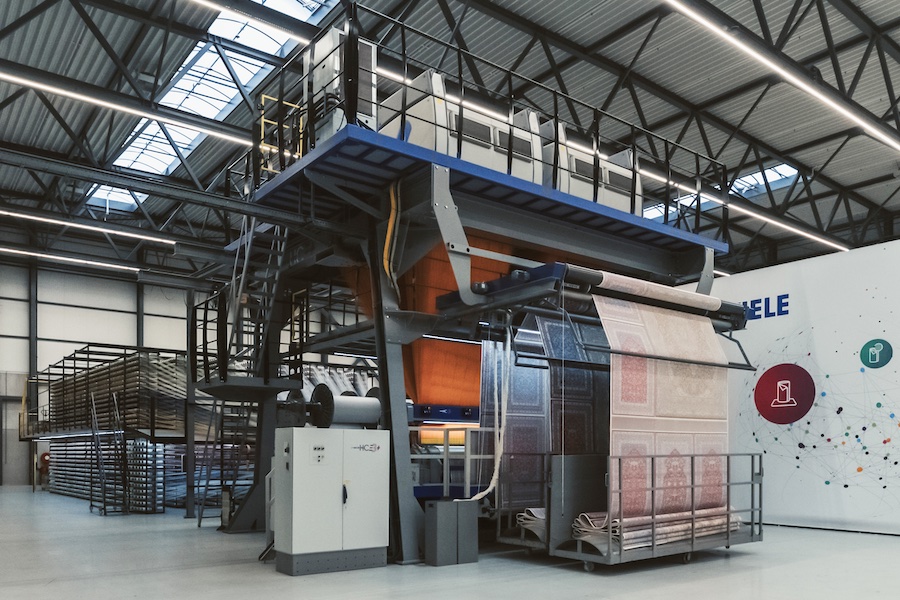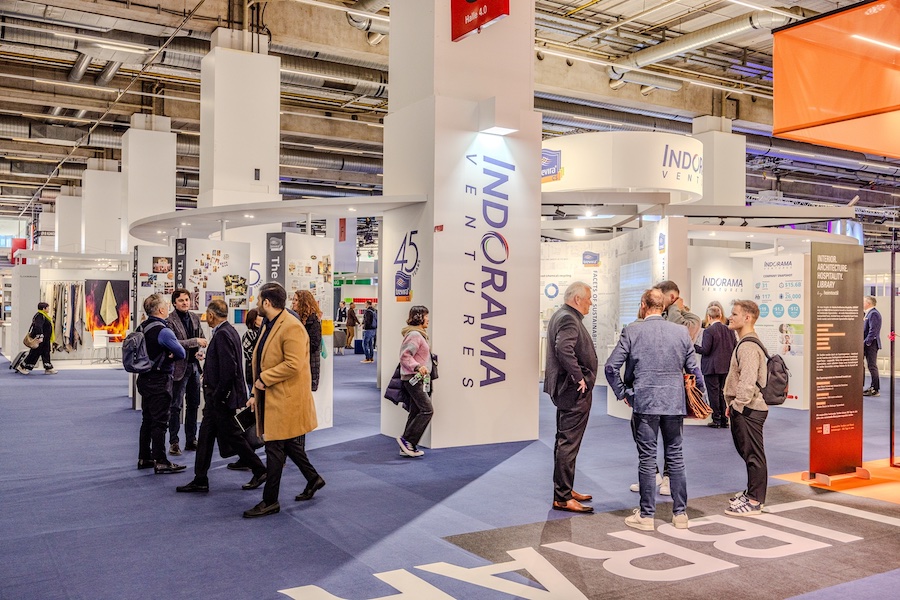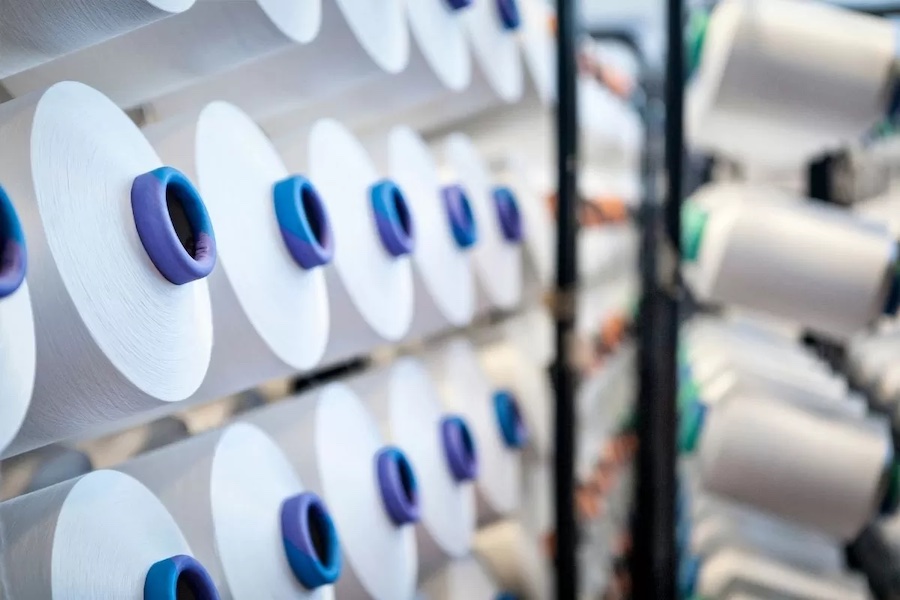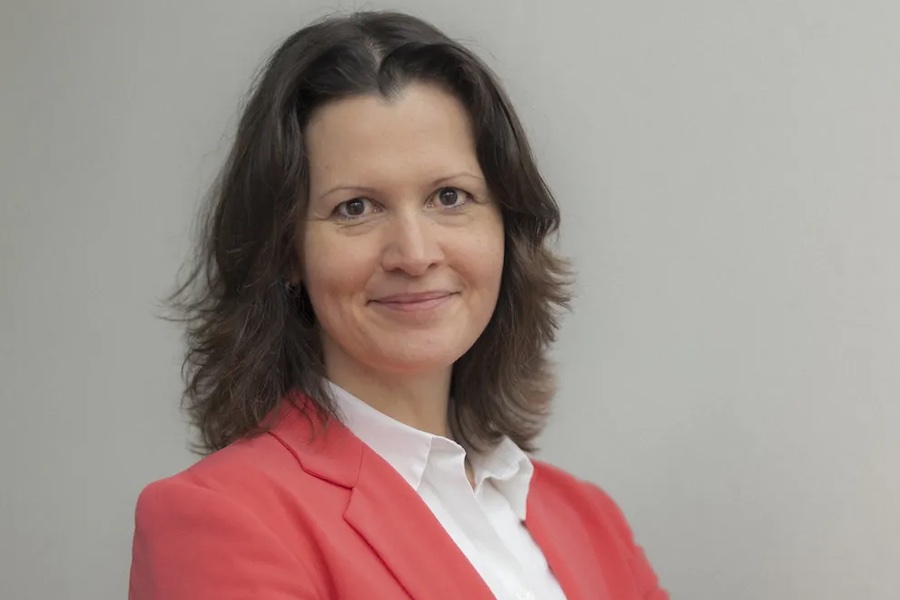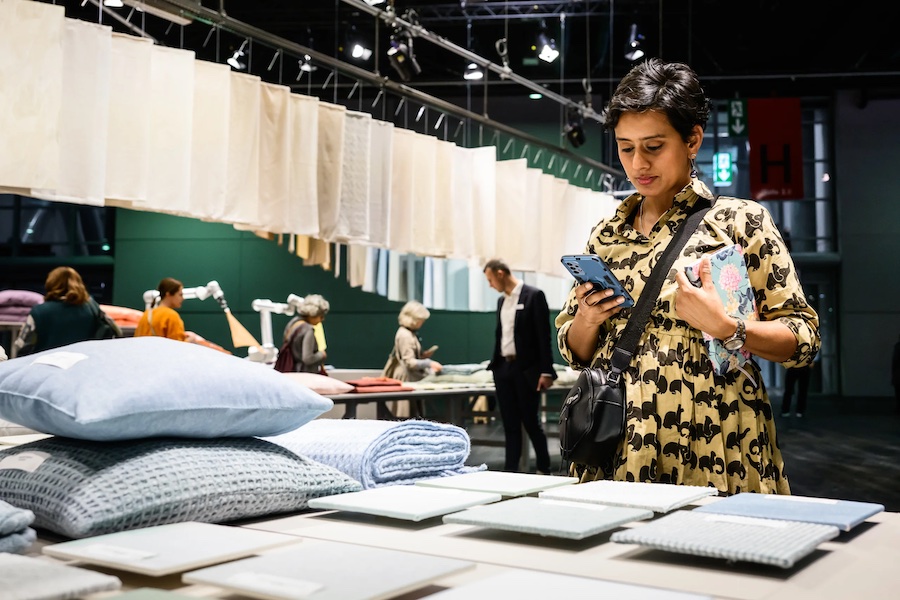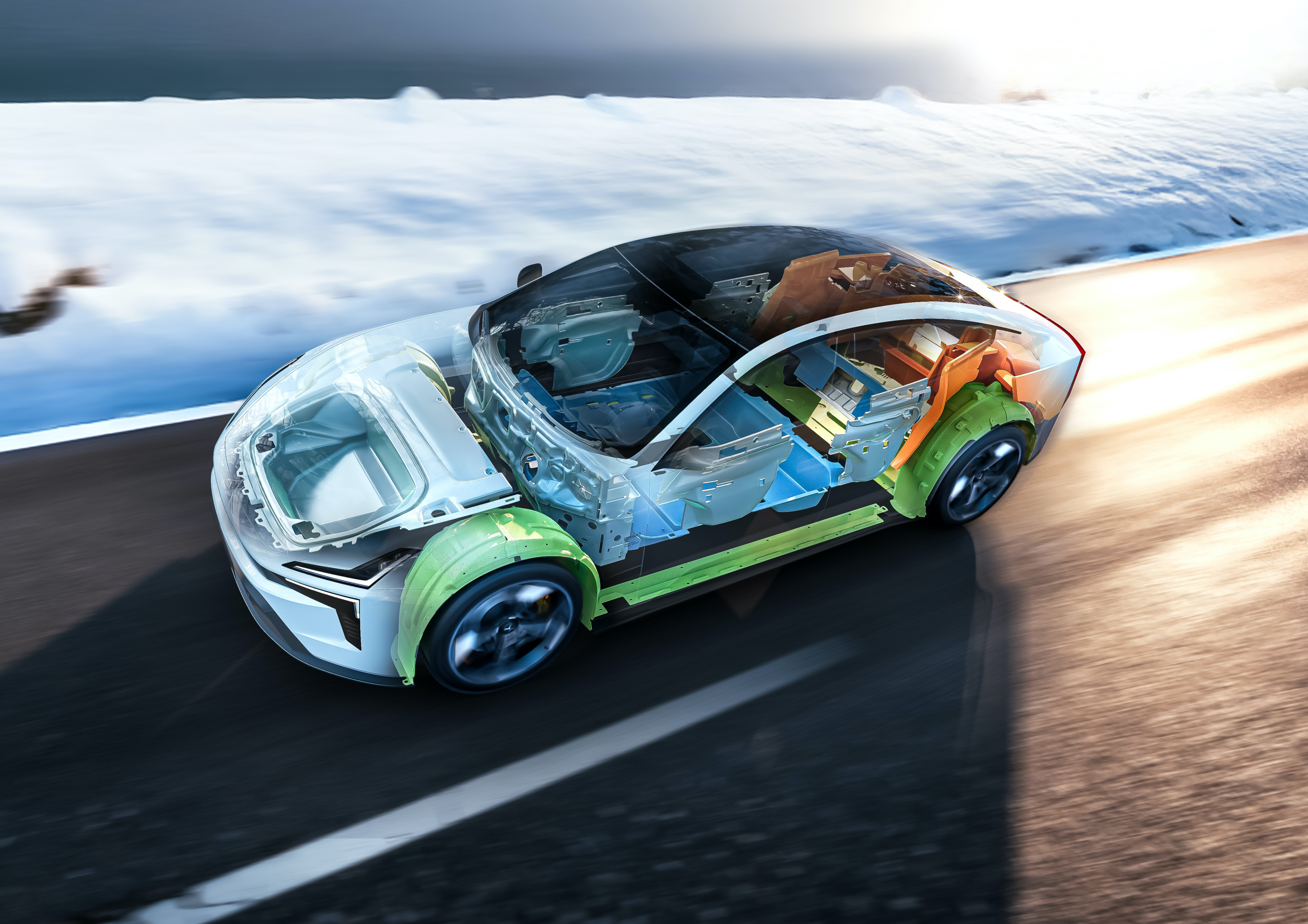#Yarn & Fiber
VEOCEL™ Insights: Eco-friendly parenting is driving demand for sustainable baby products
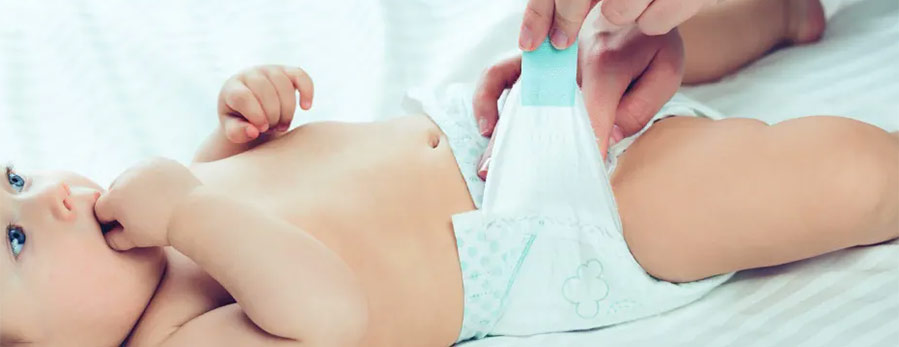
To understand more about the growing theme of eco-friendly parenting, we sat down with Jeff De Gruttola, Head of Business Development Nonwovens, Americas Europe Middle East and Africa, Lenzing AG, in this segment of the VEOCEL™ Insight Series.
---
Q: Eco-friendly parenting is a trending theme among families. How is the nonwovens industry adapting to cater for this new generation of environmentally conscious parents?
Jeff: A baby usually needs around 6,000 diapers and 25,000 wet wipes until it is potty-trained at the age of two and a half years old. The damage that this has on the environment can be minimized by parents consciously selecting the type of materials on their baby’s changing table.
Eco-friendly parenting is a lifestyle that is growing in popularity, leading to an increasing demand for sustainable baby products. This concept is about making healthy choices that are organic, natural, and with minimum environmental impact.
To address such consumer demand, using sustainable materials and offering transparency of the raw materials used in baby products are the key measures to ensure that parents are making informed purchase decisions. The VEOCEL™ brand, which offers fibers derived from sustainable wood sources, is dedicated to encouraging our customers and brand partners to offer more eco-conscious products to consumers, building a more sustainable future together.
For example, our baby wipe launch in collaboration with Coterie aims to encourage consumers to take another step towards committing to a more environmentally friendly future for our children. Coterie is currently the only baby wipes brand in the US to include the VEOCEL™ brand logo in its packaging, an important indicator that the product is made from 100% cellulosic and biodegradable fiber materials. Both brands place high importance on transparency around materials and ingredients, while the VEOCEL™ logo acts as a label of trust for eco-conscious consumers, creating an important benchmark for the industry as a whole.
With VEOCEL™ branded fibers confirmed by the European Commission’s Single-Use Plastics Directive in June 2021 as sustainable alternatives to single-use plastics in many everyday applications, the brand envisions new business opportunities not only in the EU but around the world. We hope the Directive will encourage brands and business partners to re-evaluate global best practices and switch to more eco-friendly alternatives, such as VEOCEL™ branded Lyocell fibers and we believe the demand for sustainable non-plastic nonwovens from renewable sources will continue to increase.
Q: What intrinsic benefits do VEOCEL™ branded fibers have which make them perfect for use in baby skin?
Jeff: Wet wipes are above all a mostly essential helper in the case of baby care. However, a lot of consumers don’t realize that many conventional wet wipes contain a lot of plastic.
In contrast, wet wipes that are made of VEOCEL™ branded fibers, are free of plastic, guaranteed to be of botanic origin, gentle on skin yet have high tensile strength making it especially useful in baby wipes where thorough cleanliness is needed to give the user confidence. They also combine the safety, hygiene, and convenience of single-use wipes with a sustainable environmental footprint parents can feel good about.
The recently launched Coterie baby wipes, which are made from environmentally responsible VEOCEL™ Lyocell fibers, are setting new industry standards for sustainable design as their cutting-edge cellulosic fibers - including natural absorbency, liquid distribution, biodegradability, and versatility - mean the fabrics show tremendous durability in both a dry and wet state.
Separately, we have put in place innovative technologies which serve as an additional benefit to the properties of VEOCEL™ fibers and aim to make parent’s lives easier. For example, our Eco Disperse technology enables VEOCEL™ branded lyocell fibers within flushable moist toilet tissues to disintegrate and be biodegradable. The unique fiber properties of lyocell fibers enhance moist toilet tissues to be strong when in use, yet naturally disintegrate after flushing. Due to their biodegradability, VEOCEL™ Lyocell fibers do not contribute to water pollution and the microplastic problem caused by synthetic materials.
In addition, the Eco Lace technology allows producers to adjust the strength of 100% cellulosic wipes made from VEOCEL™ Lyocell fibers in a blend with wood pulp. Wet wipes produced using this technology are characterized by strong resistance to stretching in both directions – such as when pulled out of a dispenser – making it extremely convenient for parents who are going through mountains of wet wipes a day. Furthermore, the wipes are free from synthetic and fossil-based fibers as well as adhesives, making them a sustainable choice for eco-conscious consumers.
In April 2021 we launched the nonwovens industry’s first carbon neutral VEOCEL™ branded fibers. This offering is a step forward for the brand to achieve carbon neutrality, as well as encouraging the industry to drive progress towards a carbon-zero future. Our aim here is to support nonwovens industry partners and product brands to reduce climate impact by using fibers with a net-zero footprint.
Q: Beyond eco-friendly baby wipes, what other steps can parents take to reduce their environmental footprint?
Jeff: The low-waste lifestyle is gaining traction amongst many eco-conscious mums and dads, and there are many ways that they can look to further reduce the amount of waste in their household. For some parents, that might mean using a secondhand changing table. With a little luck you will find the model you prefer within your group of friends, at a flea market, or in online small ads. Buying secondhand saves resources in terms of production and packaging and takes the load off waste disposal companies – and it also saves money.
If you want to minimize your environmental footprint, less is more when it comes to baby products and that includes the packaging it comes in. You can save resources and reduce the mountains of plastic waste by your choice of material and applying the secondhand principle: since many things are only in use for a short time, they can ideally be given to someone else and used again. In addition, using products which feature VEOCEL™ branded lyocell fibers with Eco-Cycle technology helps to drive sustainability and circularity in the nonwovens industry. The technology involves the upcycling of a substantial proportion of pre-consumer cotton scraps, e.g. from garment production, and mixing with sustainably sourced wood pulp, to produce pure new virgin VEOCEL™ branded lyocell fibers for nonwovens applications. The 6,000 diapers I mentioned earlier highlight the fact that the selection of diapers is one of the most important things in terms of environmental protection. Ecological-disposable diapers made partly of replenishable raw materials are also now available and are particularly well suited to babies with a sensitive skin.



